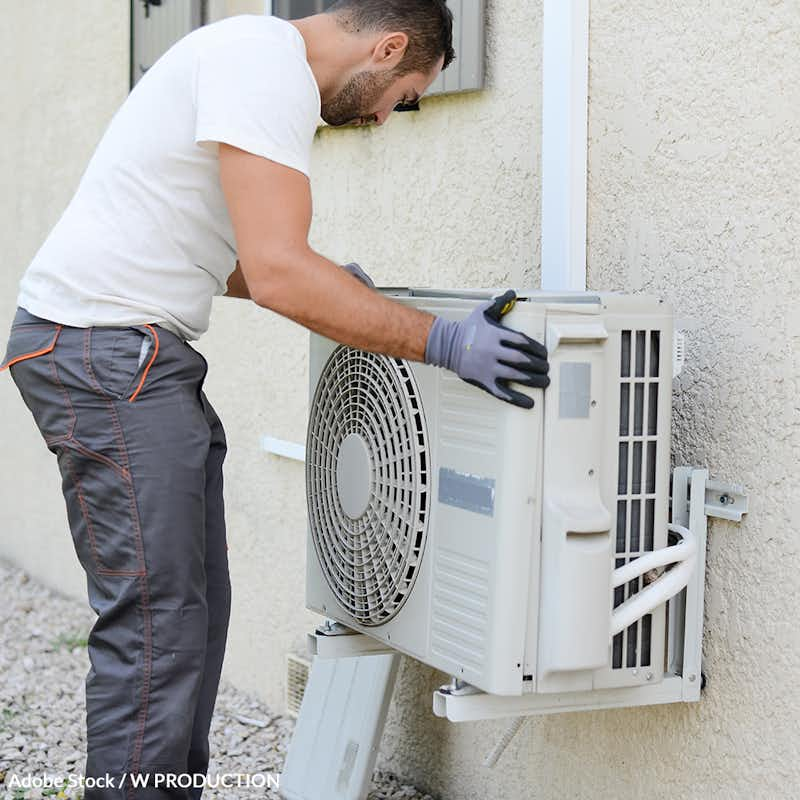Urge the U.S. to Explore Air Conditioning Options That Won't Destroy the Planet
15,825 signatures toward our 30,000 Goal
Sponsor: The Rainforest Site
We need increased funding for innovative solutions to our air conditioning addiction.

There's no denying the trend that each year our summers get hotter. To compensate for the rise in temperature, we swim; we turn the blinds; we purchase sun shades for our cars; and, we crank our air conditioning: in the car, at work, and at home1.
The problem is that our air conditioning units are actually making the planet hotter.
Air conditioning units are, in a word, inefficient. They account for an estimated 6% of annual American energy consumption, and spew 117 million tons of carbon dioxide into the air each year2. Moreover, some air conditioning units still contain (and leak) refrigerants called hydrofluorocarbons, a very potent and long-lasting greenhouse gas3.
The solution is not as simple as banning air conditioners. Air conditioning units actually do save the lives of children, the elderly, and pets on hot days. Cooler temperatures have also proven to increase productivity4. Factor in that researchers project the installation of 700 million air conditioners worldwide in the next 15 years, and 1.6 billion by 2050 and the solution becomes more complex5.
Humans cannot afford to turn their back entirely on air conditioning, which is why the United States, where 86% of households have air conditioning, must push for innovation. Affordable air conditioning units powered by renewable energy must be made a priority6.
Sign below to urge the U.S. House of Representatives Committee on the Budget and the U.S. Senate Committee on the Budget to make air conditioning innovation top priority by increasing the budget for non-defense research and development. It may be the only way the world finds a cool, clean solution.
- Denise Chow, NBC News (21 March 2021), "Summers could last half the year by the end of this century."
- Energy.gov, "Air Conditioning."
- Laura Klivans, KQED (15 March 2021), "Refrigerants Are the Worst Greenhouse Gases Youve Never Heard Of. Here's What You Can Do."
- Centers for Disease Control and Prevention, U.S. Department of Health & Human Services (19 July 2021), "Keep Your Cool in Hot Weather!."
- Chris Mooney, Brady Dennis, The Washington Post (31 May 2018), "The world is about to install 700 million air conditioners. Heres what that means for the climate."
- Katie Herzog, Grist (26 July 2016), "How air-conditioning made America — and how it could break us all."
The Petition:
To the U.S. House of Representatives Committee on the Budget and The U.S. Senate Committee on the Budget:
In 1965, just 10% of homes in the United States had air conditioning. Today, that number has risen to 86%.
However, today's air conditioning units are, in a word, inefficient. They account for an estimated 6% of annual American energy consumption, and spew 117 million tons of carbon dioxide into the air each year. Moreover, some air conditioning units still contain (and leak) refrigerants called hydrofluorocarbons, a very potent and long-lasting greenhouse gas.
In other words, by keeping our homes and workplaces cool, we're heating up our planet.
The scariest part is that, when taking a moment to look around the world, it's easy to see that other countries are prepared to follow America's air conditioning lead, as researchers project that by 2050, 1.6 billion air conditioning units will be installed.
Look specifically to China for proof, and see that, in the last 15 years, the country has gone from just a few homes having air conditioning to all homes having air conditioning, and then some.
Look to India, to Indonesia, and to Brazil, and see that sales of air conditioning units are increasing at a rate of 10% to 15% per year.
Look to Mexico, where 13% of households currently have AC. Look to that number settling somewhere between 71% and 81% by 2100.
The air conditioning industry is booming, and, unless we find renewable solutions to keeping cool, it will be the end of us all. That's why it is now, not tomorrow, that I call on you to embrace the idea that, despite our country's recent hardships, America is still looked up to, and that it is we who must lead this change.
To do so, I ask you to please make air conditioning a top priority, and to place this delicate problem in the hands of our country's most brilliant innovators by increasing the budget for non-defense research and development to develop clean, green alternatives to powering this essential technology.
Sincerely,